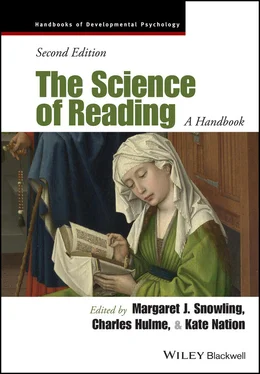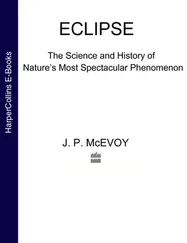The Science of Reading
Здесь есть возможность читать онлайн «The Science of Reading» — ознакомительный отрывок электронной книги совершенно бесплатно, а после прочтения отрывка купить полную версию. В некоторых случаях можно слушать аудио, скачать через торрент в формате fb2 и присутствует краткое содержание. Жанр: unrecognised, на английском языке. Описание произведения, (предисловие) а так же отзывы посетителей доступны на портале библиотеки ЛибКат.
- Название:The Science of Reading
- Автор:
- Жанр:
- Год:неизвестен
- ISBN:нет данных
- Рейтинг книги:5 / 5. Голосов: 1
-
Избранное:Добавить в избранное
- Отзывы:
-
Ваша оценка:
- 100
- 1
- 2
- 3
- 4
- 5
The Science of Reading: краткое содержание, описание и аннотация
Предлагаем к чтению аннотацию, описание, краткое содержание или предисловие (зависит от того, что написал сам автор книги «The Science of Reading»). Если вы не нашли необходимую информацию о книге — напишите в комментариях, мы постараемся отыскать её.
The Science of Reading
The Science of Reading
Wiley
Blackwell Handbooks of Developmental Psychology
The Science of Reading: A Handbook
The Science of Reading — читать онлайн ознакомительный отрывок
Ниже представлен текст книги, разбитый по страницам. Система сохранения места последней прочитанной страницы, позволяет с удобством читать онлайн бесплатно книгу «The Science of Reading», без необходимости каждый раз заново искать на чём Вы остановились. Поставьте закладку, и сможете в любой момент перейти на страницу, на которой закончили чтение.
Интервал:
Закладка:
Anne CastlesDepartment of Psychological Sciences & Macquaire Centre for Reading Macquarie University NSW 2109 Australia
Hugh W. CattsCollege of Communication and Information Florida State University 201 W Bloxham Street Tallahassee FL 32301 USA
Jessica ChanFaculty of Education Okanagan School of Education The University of British Columbia EME 3145, 1137 Alumni Avenue Kelowna, British Columbia V1V1V7 Canada
Donald L. ComptonProfessor of Psychology and Education Florida Center for Reading Research Florida State University Psychology C234M 1107 W. Call Street P.O. Box 306-4304 Tallahassee, FL 32306
Ashley A. EdwardsDepartment of Psychology Florida State University 1107 W. Call Street Tallahassee FL 32306‐4301 USA
Molly Farry‐ThornUniversity of Wisconsin‐Madison 1202 West Johnson Street Madison WI 53706‐1611 USA
Jonathan GraingerLaboratoire de Psychologie Cognitive CNRS & Aix‐Marseille University UMR7290 Bâtiment 9 Case D 3, Place Victor Hugo 13331 Marseille Cedex 3 France
Nuria GutiérrezDepartment of Psychology Florida State University 1107 W. Call Street Tallahassee FL 32306 USA
Lorna G. HamiltonSchool of Education, Language and Psychology York St John University Lord Mayor’s Walk York YO31 7EX UK
Sara A. HartDepartment of Psychology Florida State University 1107 W. Call Street Tallahassee FL 32306‐4301 USA
Marianna E. Hayiou‐ThomasDepartment of Psychology Room PS/C102 University of York UK
Anne HelderEducation and Child Studies Leiden University Wassenaarseweg 52 2333 AK Leiden The Netherlands
Charles HulmeDepartment of Education University of Oxford 15 Norham Gardens Oxford OX2 6PY UK
Nenagh KempRoom 132, Social Sciences University of Tasmania Australia
Panayiota KendeouUniversity of Minnesota Educational Psychology Room 158 EdSciB 56 E River Pkwy Minneapolis MN 55455 USA
Matthew A. Lambon‐RalphMRC Recognition and Brain Sciences Unit University of Cambridge 15 Chaucer Road Cambridge CB2 7EF
Jun‐Ren LeeDepartment of Educational Psychology and Counselling National Taiwan Normal University Taiwan
Arne LervågDepartment of Education University of Oslo Postboks 1092 Blindern 0317 Oslo Norway
Feifei LiangTianjin Normal University No. 57‐1 Wujiayao Street Hexi District Tianjin 300074 China
Callie W. LittleFaculty of Medicine and Health School of Psychology University of New England Elm Avenue Armidale NSW 2351 Australia
Simon P. LiversedgeSchool of Psychology and Computer Science University of Central Lancashire Preston Lancashire PR1 2HE UK
Catherine McBrideDepartment of Psychology The Chinese University of Hong Kong Hong Kong China
Monica Melby‐LervågDepartment of Special Needs Education University of Oslo Postboks 1140 Blindern 0318 Oslo Norway
Xiangzhi MengSchool of Psychological and Cognitive Sciences Peking University Beijing China
Kristina MollDepartment of Child and Adolescent Psychiatry, Psychosomatics and Psychotherapy Ludwig‐Maximilians‐University of Munich Nußbaumstraße 5a 80336 Munich Germany
Sonali NagDepartment of Education University of Oxford University 15 Norham Gardens Oxford OX2 6PY UK
Kate NationDepartment of Experimental Psychology Anna Watts Building Radcliffe Observatory Quarter Oxford OX2 6GG UK
Dora Jue PanDepartment of Psychology The Chinese University of Hong Kong Hong Kong China
Silvia ParacchiniSchool of Medicine University of St Andrews North Haugh St Andrews KY16 9TF Scotland
Karalyn PattersonMRC Cognition and Brain Sciences Unit University of Cambridge 15 Chaucer Road Cambridge CB2 7EF UK
Charles PerfettiLearning Research & Development Center University of Pittsburgh Pittsburgh PA 15260 USA
Yaacov PetscherCollege of Social Work Florida State University 296 Champions Way University Center Building C ‐ Suite 2500 Tallahassee FL 32306‐2570 USA
Kathleen RastleDepartment of Psychology Royal Holloway, University of London Egham Hill Egham Surrey TW20 0EX UK
Valeria M. RigobonDepartment of Psychology Florida State University 1107 W. Call Street Tallahassee FL 32306‐4301 USA
Robert SavageUniversity College London Institute of Education 25 Woburn Square London W1H 0AA UK
Mark S. SeidenbergUniversity of Wisconsin‐Madison 1202 West Johnson Street Madison WI 53706‐1611 USA
Margaret J. SnowlingDepartment of Experimental Psychology St John’s College Oxford OX1 3JP UK
Laura M. SteacyCollege of Education & Florida Center for Reading Research Florida State University 1114 W Call Street Tallahassee FL 32306-4450 USA
Rebecca TreimanDepartment of Psychological and Brain Sciences Washington University in St. Louis Campus Box 1125 One Brookings Drive St. Louis MO 63130‐4899 USA
Paul van den BroekEducation and Child Studies Leiden University Wassenaarseweg 52 2333 AK Leiden The Netherlands
Richard K. WagnerDepartment of Psychology Florida State University 1107 W.Call Street Tallahassee FL 32306‐4301 USA
Krystal WerfelCenter for Childhood Deafness, Language, and Learning Boys Town National Research Hospital 555 N 30 thStreet Omaha, NE 68131 USA
Sarah G. WoodDepartment of Psychology Florida State University 1107 W. Call Street Tallahassee FL 32306‐4301 USA
Anna WoollamsDivision of Neuroscience & Experimental Psychology The University of Manchester Oxford Rd Manchester M13 9PL UK
Jason D. YeatmanGraduate School of Education Stanford University 485 Lasuen Mall Stanford CA 94305‐3096 USA
Chuanli ZangTianjin Normal University University of Central Lancashire Preston Lancashire PR1 2HE UK
Jason D. ZevinUniversity of Southern California 3551 Trousdale Parkway – ADM 204 Los Angeles CA 90089‐4019 USA
Fotena A. ZirpsDepartment of Psychology Florida State University 1107 W.Call Street Tallahassee FL 32306‐4301 USA
Preface
As the eponymous title The Science of Reading suggested, the aim of the first edition of this handbook was to bring together scientific studies of reading into a state‐of‐the‐art review. The preface of that volume stated “The science of reading is mature and healthy as the contributions to this volume make clear.” Our aim in this second edition remained the same – to bring together scientific studies of reading into an updated overview of the field; as we shall see, old questions have been answered and new questions have arisen as understanding of the complexities of reading has deepened, driven by theoretical insights and methodological advances.
Part 1 deals with word recognition processes in skilled reading. This is a natural starting point: Words are the building blocks of reading and without adequate word identification, reading comprehension is compromised. With a review of the skilled system as a backdrop, Part 2 considers the development of word reading. Although knowledge of word recognition processes and their development was already advanced fifteen years ago, each of the chapters in Parts 1 and 2 highlights new findings and research directions. A number of themes emerge, not least a greater recognition of the need to unite theories about development and learning with theories about skilled processing – after all, reading in proficient adults is the product of many years of reading experience that has optimized the reading system to the task in hand. Another important development has been to better understand how morphological structure is represented in written language, and how this is accessed and used during word recognition. Like the mappings between orthography and phonology, morphological information is systematically represented in orthography in ways that reflect graded regularities. Learning to read efficiently requires children to develop a reading system that adequately embodies the distributional information coded by the writing system. In line with this view, several chapters emphasize statistical learning approaches that view skilled reading as the emergent product of interactions between readers and texts.
Читать дальшеИнтервал:
Закладка:
Похожие книги на «The Science of Reading»
Представляем Вашему вниманию похожие книги на «The Science of Reading» списком для выбора. Мы отобрали схожую по названию и смыслу литературу в надежде предоставить читателям больше вариантов отыскать новые, интересные, ещё непрочитанные произведения.
Обсуждение, отзывы о книге «The Science of Reading» и просто собственные мнения читателей. Оставьте ваши комментарии, напишите, что Вы думаете о произведении, его смысле или главных героях. Укажите что конкретно понравилось, а что нет, и почему Вы так считаете.











